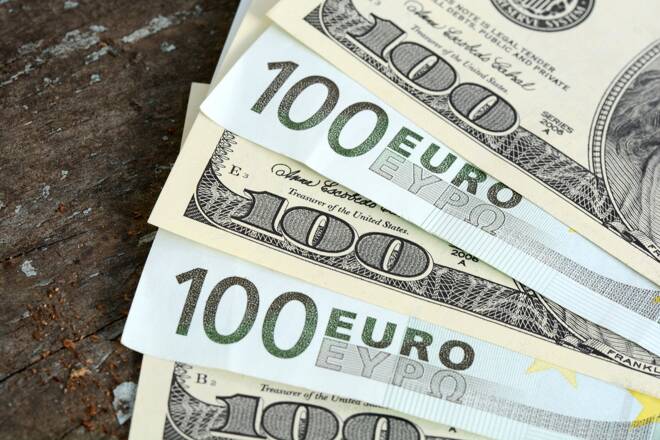Advertisement
Advertisement
German Consumer Sentiment Raises Red Flags for the ECB
By:
It was a relatively busy start to the European session, with German stats in focus. While GDP numbers beat prelims, consumer confidence disapointed.
It was a relatively busy start to the day for the EUR/USD on the economic calendar. The German economy was back in focus. Finalized Q3 GDP and GfK Consumer Climate figures for December drew interest.
Were revisions to German GDP Data Enough to Shift ECB Policy Sentiment?
According to Destatis, the German economy expanded by 0.4% in Q3 versus a prelim 0.3%. The German economy grew by 0.1% in Q2.
The upward revision supports the ECB’s plans to continue hiking interest rates to bring inflation to target.
Some key takeaways from today’s report included,
- Household final consumption expenditure increased by 1.0%, while government final consumption expenditure was flat, quarter-on-quarter.
- Improving supply chains supported a 2.0% increase in exports and a 2.4% rise in imports.
- GDP in the Q3 was up 1.2% from Q3 2021. Notably, GDP exceeded pre-pandemic levels for the first time.
- Year-over-year, employment increased by 490,000 (+1.1%) to another record high.
- Increased spending led to a fall in the savings rate to 9.6%. In the previous year, the savings rate stood at 10.4%. The trend was in line with the ECB’s view on consumer confidence and saving.
However, disappointing consumer sentiment figures overshadowed the Q3 GDP numbers.
How Did Consumer Confidence Fare Ahead of the Holiday Season?
The GfK German Consumer Climate rose from -41.9 to -40.2 for December. Economists forecast an increase to -39.6.
In November, the propensity to buy fell by 1.1 points to -18.6, leaving it down 28.3 points compared to November 2021. However, the income expectations indicator increased by 6.2 points to -54.3. Despite the rise, income expectations are still down more than 67 points year-over-year.
The economic prospects indicator increased by 4.3 points to -17.9 points. While the economic prospects and income expectations indicators rose, consumers expect hefty energy bills in the coming months that could see consumers tighten their purse strings, a negative for the growth in Q4 and early 2023.
A sharp decline in spending could question the ECB’s growth and policy outlook.
How Did the EUR Respond to Today’s Stats?
In response to today’s numbers, the EUR/USD rose to a post-stat high of $1.04226 before falling to a post-stat low of $1.04111.
However, despite concerns over consumer confidence and consumption, the EUR held onto early gains.
At the time of writing, the EUR/USD was up 0.06% to $1.04181, down from a current-day high of $1.04293.
What Else Do Investors Need to Consider Today?
Following today’s stats, ECB member commentary will also need consideration. ECB members Luis de Guindos will speak today. On Thursday, ECB hawk Isabel Schnabel reportedly favored further aggressive policy moves to target inflation. According to Reuters, Schnabel said,
“Incoming data so far suggest that the room for slowing down the pace of interest rate adjustments remains limited, even as we are approaching estimates of the ‘neutral’ rate.”
Aligned with the ECB minutes, Schnabel noted that policy should remain data-dependent.
About the Author
Bob Masonauthor
With over 28 years of experience in the financial industry, Bob has worked with various global rating agencies and multinational banks. Currently he is covering currencies, commodities, alternative asset classes and global equities, focusing mostly on European and Asian markets.
Advertisement
